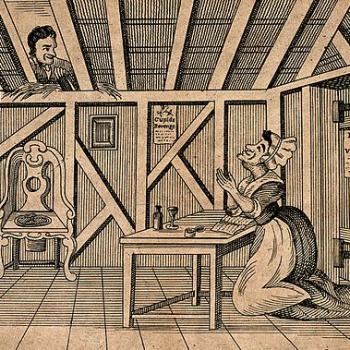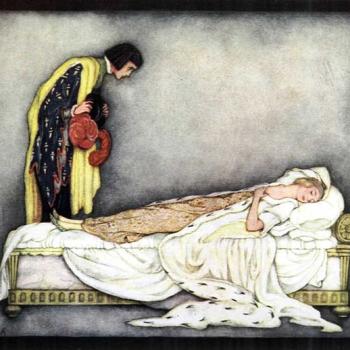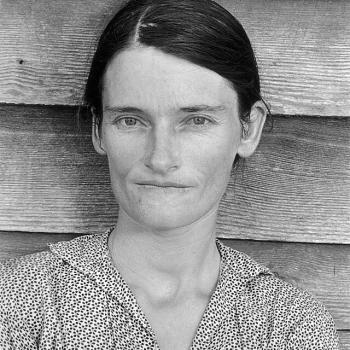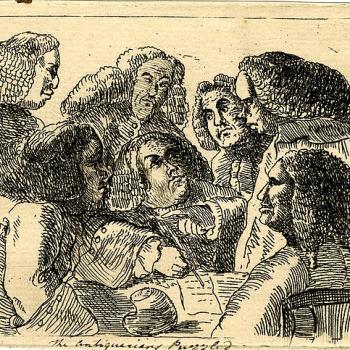
One of the earliest of the operettas by Gilbert and Sullivan is The Sorcerer, which dates from 1877. I don’t know whether W. S. Gilbert had become familiar with the works of Karl Marx by that date, but his libretto for The Sorcerer is a brilliant parody of the idea that class distinctions in society can be artificially and (the word is inevitable) “unnaturally” done away with.
As this is the introductory essay for the Dinosaur, I am going to stand up the message of the operetta as a leading theme for all my forthcoming columns: generally speaking, the “natural” is reliable, for the most part, and the artificial or unnatural is delusory. Let me explain by giving you a very brief summary of The Sorcerer:
An idealistic young Englishman is in love with a young woman; he is devoted to eliminating class distinctions, and believes that anyone should be able to marry any member of the opposite sex, regardless of social standing. To this end he buys a tremendous amount of a love potion from the sorcerer in the title, and pours it into the tea dispenser at a major village festival. The upshot is that his intended bride falls under the influence of the magic elixir, and then in love with another man. Our idealistic hero is in despair. He has loosed chaos on the affairs of his little town, all because he chose to arrange matters by resorting to the demonic, the supernatural (not the natural), the illicit (by altering other people’s wills without their consent) and the delusionary. The Sorcerer being a comedy, all eventually ends happily, and Hero winds up with intended Heroine.
With a great deal of typical Gilbertian charm and wit, the point is made that human beings produce civilizations that grow organically. Just as humans themselves grow organically, so do their social structures and political organizations. And just as human beings differ vastly in and of themselves, so do those structures and organizations. Some of us are stout (in both senses of the word) mechanics in service to a democratic Weltanshauung, and others are tall, lean bookkeepers whose taste is more in line with a snooty aristocracy. But both democracy and aristocracy have arisen in history the way lemon trees arise from the ground – organically, naturally. It seems natural that people would want to decide for themselves how they will live out the details of their lives. It also seems natural that people would submit themselves to the decisions of individuals who were much wiser and more educated than themselves. And of course monarchy is simply a reduction of aristocracy from a relative handful to One.
What is not seemingly natural is that an upstart cadre of social engineers should appear, and then impose mandates that upend

biological reproduction, annihilate marriage, destroy filial affection, sow animosity between the sexes, and sabotage the age-old processes of agriculture. If any such cadre appeared, and sought to short-circuit or reverse the obvious purposes of Nature, it would be the ugly, large-scale equivalent of our well-meaning, small-scale, lovestruck hero from The Sorcerer. His aims, of course, were much less heinous. But his means, and his delusion, were nevertheless a bit ominous. Yes, people should be free to marry across class lines. But you cannot use the tools of the Underworld to cut people to fit the Procrustes bed of your ideology. It’s just not (the word is inevitable) natural.













